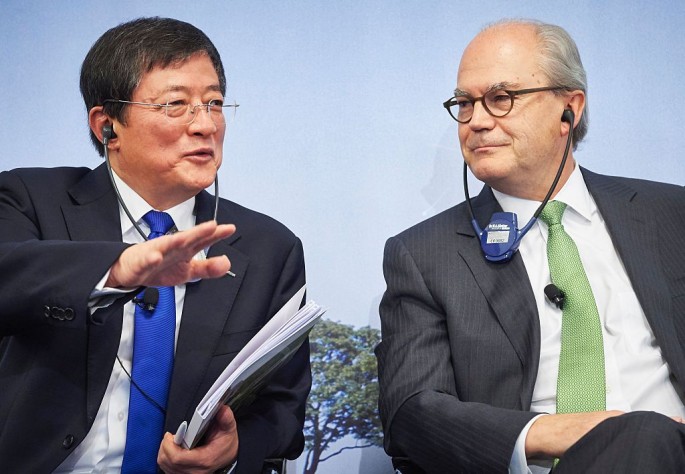A new generation of expert dealmakers from China has made possible the $207 billion global buying spree that Chinese companies pulled off in recent years, according to merger and acquisition (M&A) professionals.
A report by Bloomberg said that some Chinese firms have learned how to comfort the concerns of stakeholders, and have become proficient at negotiating deals, combined with political courtship and security of jobs for company workers.
"Many Chinese companies have become much more adept at navigating international deals in the last few years, and at soothing the concerns stakeholders might have," Nicola Mayo, a partner at London law firm Linklaters LLP who specializes in China-Europe transactions, said. "In many of the larger Chinese companies, you're dealing with managers who were educated abroad or have worked in international firms. They understand the concerns about China and know they need to move carefully."
According to the report, Chinese businesses have become a more dominant force in the M&A world, especially in Europe, where nearly half of the takeovers this year were initiated by Chinese firms.
Some Chinese bidders have also become sophisticated that they develop a set of rules or a playbook, to help minimize backlash. Most Chinese firms also try to avoid hostile takeovers and prefer friendly offers, which can take years of informal courtship. These firms also make pledges to assuage sellers such as keeping management teams in place, long-term investment guarantees and other measures for job security.
For instance, Midea Group Co, a Chinese home-appliance company, which announced plans in May to acquire a large share in Kuka AG, a German robotics firm, vowed to maintain existing plants and jobs until 2023 as well as keep itself away from customer data.
Midea sent its vice president Andy Gu, a social scientist by training with a doctorate from Cornell University, to personally meet with the German economy minister's senior staff to allay their fears and concerns, according to sources. Kuka also helped eased the concerns of its customers.
The other deals by Chinese firms included the $43 billion takeover of Switzerland's Syngenta AG by China National Chemical Corp, seen as the biggest-ever foreign acquisition by a Chinese firm. Another is the $8.6 billion deal by Tencent Holdings Ltd with Finnish video-game maker Supercell Oy, while HNA Group Co. has agreed to buy $10 billion aircraft-leasing business from CIT Group Inc.
Some deals, however, did not succeed such as Anbang Insurance Group Co.'s aborted $14 billion bid for Starwood Hotels & Resorts Worldwide Inc. in April. Dalian Wanda's acquisition in the U.S. entertainment industry has triggered an inquiry by U.S. congressmen.
According to Hernan Cristerna, the global co-head of M&A at JPMorgan Chase & Co., the influence of the Chinese government on the corporate decision of some Chinese firms "can make sellers nervous," adding that it is still premature to tell if Chinese firms will honor their promises in the recent takeovers.
Local companies are encouraged by the Chinese government to acquire expertise abroad as the country shifts from low-end manufacturing to high-tech industries and consumer services sector.
"There's no reason why China won't look back at this as the trickle before the stream turns into a river," Kenneth Courtis, a former Goldman Sachs Group Inc. banker and now chairman of advisory firm Starfort Holdings, said. "It's going to happen and some will resist it for a while, but they will come to terms with it."



























